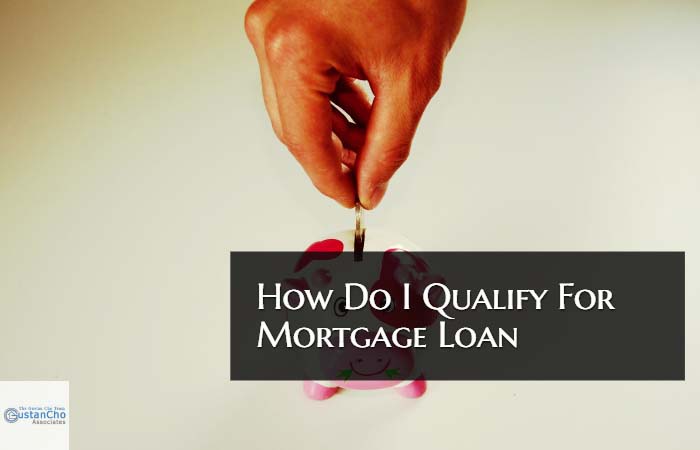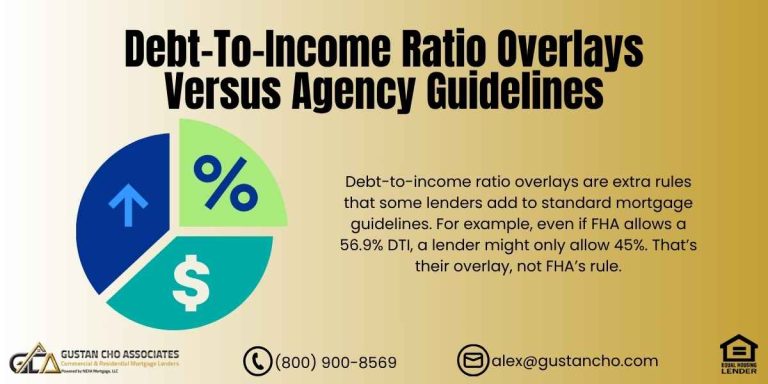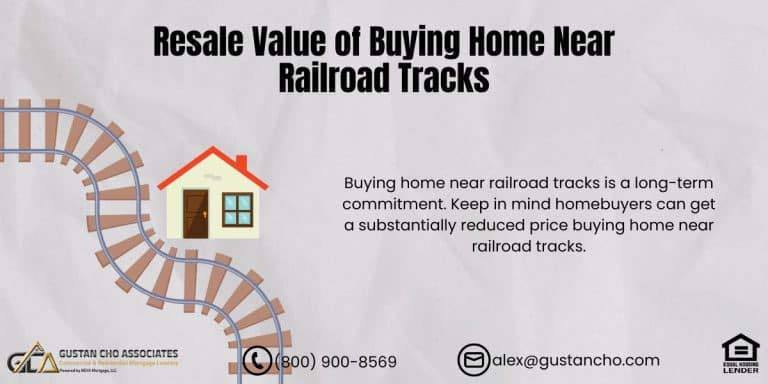This Article Is About How Mortgage Forbearance Affected The Housing Market:
How Mortgage Forbearance Affected The Housing Market In The United States:
It is no secret that the housing market has been greatly affected from the global COVID-19 coronavirus outbreak. The United States Congress enacted the C.A.R.E.S. ACT which set forbearance protection for individuals and families facing financial hardship due to the pandemic. The CARES ACT allowed homeowners to put their mortgage into forbearance for up to 12 months (6 months at a time). This protection was set to expire on December 31, 2020. However the program was extended a few more times lasting all the way through June 30, 2021. Now that these protections have ended, many families are looking to refinance their mortgage loans to save money. Other families are looking to purchase a new home.
In this blog we will detail when you will be eligible to enter into a new mortgage after exiting the CARES ACT mortgage forbearance. We will discuss and cover How Mortgage Forbearance Affected The Housing Market.
How Mortgage Forbearance Affected The Housing Market: The CARES ACT
The CARES ACT provided mortgage forbearance for any homeowner with a federally backed mortgage. Federally backed mortgages included FHA, VA, Freddie Mac, and Fannie Mae. Most mortgages in the United States are under this category. It is estimated that 95% of mortgages on single-family homes fall into a government backed mortgage loan. Many mortgages such as “jumbo loans’ are not federally backed but many of those servicers were willing to work with their borrowers to avoid late payments or default. And now that CARES ACT forbearance has ended, you and your mortgage servicer must come to an agreement for the past due amount. There are a few different ways to exit mortgage forbearance. If you are unable to make payments after forbearance has ended, you will want to reach out to your lender as soon as possible and hopefully be able to modify your current loan. Will exiting forbearance affect your mortgage credit scores? This is a good question, but the short answer is no. When you initially put your loan into forbearance, there is a chance that the credit bureaus will lower your credit scores slightly. However, forbearance is not a negative mark on your credit report.
Foreclosure Rates At A 20 Year Low Due To The CARES ACT Forbearance Mortgage Program
Some positive news with mortgages and forbearance. Foreclosures are at a 20 year low and fall under 1 in every 750 homes nationwide. This is a good sign for the housing market. As borrowers in trouble with their mortgage loan exit forbearance, they more than likely have a higher equity position due to home appreciation. The United States housing market has gone up significantly since the start of the COVID-19 lockdowns. It is estimated that the appreciation has kept up with the funds required to make up the missed payments. Meaning the equity built by higher home values has kept up with equity lost by not paying your loan during forbearance. This will help borrowers stay out of foreclosure. Many borrowers who are in financial trouble and on the verge of not being able to make payments more than likely have equity that will allow them to sell (or at least short sell) their home to avoid a true foreclosure.
Home Purchase Or Refinance During Mortgage Forbearance
Can you purchase and/or refinance while your mortgage is in forbearance? If you truly missed payments on your mortgage, you cannot purchase or refinance a home until you have exited forbearance and made at least three on-time payments before closing your next mortgage. A lender wants to see you exit forbearance and show the ability to make at least three on time monthly mortgage payments before being eligible to enter into a new mortgage. If you entered into forbearance but continued to make all of your monthly payments, then you are eligible to buy or refinance a home anytime. Below are the specific requirements per each agency and when you will be eligible to enter into a new mortgage. The lingo used in the information below may be confusing. For any clarification, please call the forbearance expert at the Gustan Cho Associates, Mike Gracz on (800) 900-8569 or email mike@gustancho.com.
How Mortgage Forbearance Affected The Housing Market: Fannie Mae And Freddie Mac Guidelines On Conventional Loans
Fannie Mae/Freddie Mac. As stated above, a borrower who has paid all obligated mortgage payments on time, with no skipped payments will be eligible to enter into a mortgage loan. A borrower who is not current and has missed payments on any mortgage loan will be eligible for a new mortgage if those payments were resolved. Below are the ways to resolve missed payments for conventional mortgage lending:
- Reinstatement – If a borrower resolved missed payments through a reinstatement, they are eligible for a new mortgage loan. An underwriter must document the source of funds used to reinstate missed payments. This means you can pay all missed payments in one lump sum and be eligible for a new mortgage loan. The funds used must be from an acceptable source per Fannie Mae/ Freddie Mac guidelines.
- Loss mitigation solution. This is when a borrower and their mortgage company come up with a formal repayment plan to get your mortgage back on track. When a repayment plan is used, a borrower must make three on time consecutive monthly payments or complete the repayment plan, whichever comes first. Note, if you enter into a repayment plan, you are not required to complete that plan before being eligible for a new loan, you are only required to make at least three monthly on-time payments on the new plan. The repayment plan simply increases your monthly mortgage payment to catch up on your missed payments over a specified amount of time.
- A payment deferral. This option allows a borrower to tack on the missed payments and interest to the back of their current principal balance. This amount does not collect interest and is tacked on at 0%. But when you go to sell your home or refinance your mortgage loan, this amount needs to be paid in full. If this is the route you choose to go, you must make at least three on time on the payments before you will be eligible to enter into a new mortgage loan.
- Loan modification. If you are no longer in forbearance and are unable to make your monthly mortgage payments, you will need to enter into a modification. This typically starts with a three month trial and is an agreement between you and your servicer to keep your mortgage on track. If you truly enter the modification, you then must wait 12 months before you are eligible to enter into a new mortgage. During this 12 month period, all mortgage payments must be paid on time.
Your underwriting team must verify that you have made the required monthly payments. They will usually use a third-party verification service to get a payment history from your servicer, utilize your latest mortgage account statement, and complete a verification of mortgage (VOM). Underwriting requirements are very strict surrounding forbearance and there is no way to trick the system.
HUD Mortgage Guidelines On FHA Loans During Mortgage Forbearance
HUD Agency Guidelines On FHA Loans:
A borrower who is granted a mortgage payment forbearance and continued to make payments as agreed under the terms of the original note will not be considered delinquent and shall be treated as if forbearance never happened. Meaning you are eligible for financing at any time.
FHA purchase and rate and term refinance transactions: The borrower must complete the forbearance plan and make at least three consecutive payments starting the month after forbearance ends. Note, six payments are required when the mortgage is MODIFIED to be eligible to refinance. Remember a loan modification is different than exiting forbearance
FHA Cash Out Refinance. The borrower must complete the forbearance plan and make at least 12 consecutive monthly payments after forbearance ends before being eligible to complete an FHA cash out refinance transaction.
Non-credit qualifying FHA streamline refinance. An FHA streamline refinance is a very popular mortgage loan that can save you quite a bit of money. In order to be eligible for a streamline refinance, the borrower must meet the FHA seasoning requirements and make at least six payments to the FHA mortgage. The borrower must complete the forbearance plan and make at least three consecutive monthly payments after exiting forbearance before eligible to streamline their mortgage. Once again, if the mortgage loan entered a true modification, then six payments are required before eligible for a streamline refinance. An important note is the new mortgage loan may include the unpaid principal balance, up to 60 days of interest, any late charges, and escrow shortages in the new loan amount. Typically, you cannot add principal balance when you are completing an FHA streamline, but CARES ACT forbearance has changed those rules slightly.
How Mortgage Forbearance Affected The Housing Market: VA Loans
VA – VA is very similar to FHA financing. A veteran will be eligible for a new mortgage if their current loan was not delinquent at the time of forbearance. VA mortgage loans have seasoning requirements before you are eligible to refinance. The time in which your loan was in forbearance will not count towards your seasoning requirements. A veteran must be in their home for a minimum of 210 days before they are eligible to refinance. All days before (and after) forbearance will count towards a 210 day requirement. Above and beyond the 210 day requirement, the veteran is also required to make at least six consecutive monthly payments on their exiting loan. An example could be a veteran who has made three on time payments before entering forbearance, and then three payments after exiting forbearance, assuming they meet the 210 today requirement, they are then eligible for VA financing.
Similar to the FHA streamline, VA mortgage loans offer what’s called a VA interest rate reduction loan or IRRRL. In order to enter one of these mortgage loans, your loan must be current at time of closing. If the VA mortgage loan being paid off was delinquent over 30 days prior to entering forbearance, then the new loan must be submitted to the VA for approval before closing. If a veteran has invoked the CARES ACT, then the borrower must establish they are no longer experiencing a financial hardship caused by COVID-19. An underwriter must verify that there were no late payments in the previous six months excluding the time spent in forbearance.
Qualifying For A Mortgage With A Lender With No Lender Overlays On Government And Conventional Loans
Now that you understand the rules of when you will be eligible to enter into a new mortgage loan, we will go over the steps to apply. Applying to refinance your mortgage loan with Gustan Cho Associates is very simple and applying for buying a new home is just as easy. First, you will reach out directly to our team. Please call Mike Gracz on (800) 900-8569. Mike will briefly go over your mortgage qualifications and explain the potential loan programs available. You will then fill out an online application and be paired up with a licensed loan officer in the state your property is located in. After filling out the online application and sending in the required documentation, your loan officer will issue you a preapproval letter or a loan disclosure package with all the details around the refinance transaction. This is the longest part of the process for the borrower and most of the process happens behind the scenes after this step is completed.
It is important to select a mortgage team who is up to date on mortgage guidelines as well as forbearance protocol. Many loan officers do not spend the time to educate themselves with the forbearance guidelines. Our team is filled with highly skilled loan officers who are up to date on the current mortgage guidelines. These guidelines have changed quite a bit just like everything else in our lives due to COVID-19. We understand how difficult this information can be to process. There is plenty of contradicting information available online that can and will confuse your further. Gustan Cho Associates are here to help and offer mortgage programs without lender overlays. Our team is growing, and we are expanding our state licensing requirements, in order to serve our borrower’s needs. For any Mortgage related questions please call Mike Gracz at (800) 900-8569 or send an email to mike@gustancho.com. We are available seven days a week and have coverage in the evenings to fit your hectic schedule.









